Home>Garden Essentials>How Much Pumpkin Seeds To Give A Dog


Garden Essentials
How Much Pumpkin Seeds To Give A Dog
Modified: March 24, 2024
Find out how much garden pumpkin seeds to give to your dog for a healthy treat. Discover the benefits and recommended serving sizes for dogs.
(Many of the links in this article redirect to a specific reviewed product. Your purchase of these products through affiliate links helps to generate commission for Storables.com, at no extra cost. Learn more)
Introduction
When it comes to the well-being of our furry companions, we often strive to provide them with the best nutrition possible. While a balanced diet is key, there are certain natural additions that can boost their health even further. One such addition is pumpkin seeds.
Pumpkin seeds are not only a tasty snack for humans, but they also offer numerous health benefits for dogs. Whether you’re looking to improve your dog’s coat, aid digestion, or support their immune system, pumpkin seeds can be a valuable addition to their diet.
In this article, we will explore why pumpkin seeds are beneficial for dogs, discuss their health benefits, and provide guidelines on how to feed them to your furry friend. However, it is important to note that every dog is unique, and you should consult with your veterinarian before introducing new foods into your dog’s diet.
So, let’s dive into the world of pumpkin seeds and discover how they can contribute to your dog’s overall health and well-being!
Key Takeaways:
- Pumpkin seeds offer dogs improved digestion, a healthier coat, and a stronger immune system. Remember, moderation is key to avoid overfeeding and potential health issues.
- Consult your veterinarian before feeding pumpkin seeds to your dog. Follow recommended dosages, watch for overfeeding signs, and enjoy the benefits of this nutritious addition.
Why Feed Pumpkin Seeds to Dogs
Pumpkin seeds are loaded with essential nutrients that can benefit dogs in various ways. These small, green powerhouses are packed with vitamins, minerals, antioxidants, and healthy fats, making them a nutritious addition to your dog’s diet. Here’s why you should consider feeding pumpkin seeds to your four-legged companion:
- Promotes healthy digestion: Pumpkin seeds are rich in dietary fiber, which can help regulate your dog’s bowel movements and prevent constipation. The fiber content also promotes a healthy gastrointestinal tract and aids in the digestion and absorption of nutrients.
- Supports a shiny coat and healthy skin: The essential fatty acids found in pumpkin seeds, such as omega-3 and omega-6, can contribute to a lustrous coat and healthy skin. These fatty acids help moisturize the skin, reducing dryness and itchiness, while also promoting a shiny, smooth coat.
- Boosts the immune system: Pumpkin seeds are a rich source of antioxidants, including vitamin E, which can help strengthen your dog’s immune system. Antioxidants help protect cells from damage by neutralizing harmful free radicals, thereby promoting overall health and reducing the risk of chronic diseases.
- Aids in weight management: Due to their high fiber content, pumpkin seeds can help regulate appetite and provide a feeling of fullness. This can be particularly beneficial for overweight dogs or those prone to overeating, as it can assist in weight management and prevent excessive weight gain.
- Supports urinary health: The natural oils found in pumpkin seeds can help support urinary health in dogs. These oils act as a mild diuretic and can assist in maintaining a healthy urinary tract, reducing the risk of urinary tract infections and other related issues.
With these impressive benefits, it’s no wonder that many dog owners have started incorporating pumpkin seeds into their pet’s diet. However, it’s important to remember that moderation is key. While pumpkin seeds offer numerous advantages, they should be given in appropriate amounts to avoid any potential adverse effects.
Now, let’s explore the specific health benefits of pumpkin seeds for dogs in more detail!
Health Benefits of Pumpkin Seeds for Dogs
Pumpkin seeds are not only a delicious treat for dogs but also provide a range of health benefits. Adding pumpkin seeds to your dog’s diet can have a positive impact on their overall well-being. Here are some of the key health benefits of pumpkin seeds for dogs:
- Improved digestion: The high fiber content in pumpkin seeds can help regulate your dog’s digestive system. Fiber promotes healthy and regular bowel movements, reducing the risk of constipation or diarrhea. It can also aid in the prevention of gastrointestinal issues, such as upset stomach or indigestion.
- Healthy skin and coat: Pumpkin seeds contain essential fatty acids, including omega-3 and omega-6, which are crucial for maintaining a healthy skin and coat in dogs. These fatty acids can help alleviate dryness, itching, and flakiness, resulting in a shiny and lustrous coat. They can also support the skin’s natural protective barrier, reducing the risk of skin allergies or infections.
- Strong immune system: Pumpkin seeds are rich in antioxidants, including vitamin E, which can boost your dog’s immune system. Antioxidants help combat oxidative stress and protect cells from damage caused by free radicals. A strong immune system is essential for preventing illness and promoting overall health and longevity in dogs.
- Weight management: The high fiber content in pumpkin seeds can contribute to weight management in dogs. Fiber adds bulk to their diet, promoting a feeling of satiety and reducing overeating. It can also help regulate blood sugar levels, preventing spikes and dips that may lead to excessive hunger or cravings.
- Urinary health: Pumpkin seeds contain natural oils that have diuretic properties, promoting a healthy urinary system. These oils can assist in preventing urinary tract infections and supporting overall urinary health in dogs. They help flush out toxins and maintain proper hydration levels.
- Joint health: The anti-inflammatory properties of pumpkin seeds can be beneficial for dogs with joint issues or arthritis. The antioxidants and omega-3 fatty acids in pumpkin seeds help reduce inflammation, alleviating pain and stiffness in the joints. This can enhance your dog’s mobility and overall comfort.
It’s important to note that while pumpkin seeds offer many health benefits, they should be used as a supplement to a balanced diet and not as a replacement for proper nutrition. Additionally, it’s crucial to introduce new foods gradually and monitor your dog for any adverse reactions or intolerances.
Now that we’ve explored the health benefits of pumpkin seeds, let’s move on to understanding the risks and precautions associated with feeding them to your furry friend.
Risks and Precautions
While pumpkin seeds can be beneficial for dogs, it’s important to be aware of the potential risks and take necessary precautions when incorporating them into your dog’s diet. Here are some important points to consider:
- Allergies and intolerances: Just like humans, dogs can have allergies or sensitivities to certain foods. While pumpkin seeds are not considered a common allergenic food, it’s still possible for some dogs to have an adverse reaction. Monitor your dog closely after introducing pumpkin seeds into their diet, and consult with your veterinarian if you notice any unusual symptoms such as itching, vomiting, or diarrhea.
- Portion control: While pumpkin seeds offer health benefits, they should be fed in moderation. Too many pumpkin seeds can lead to an upset stomach, gastrointestinal issues, or weight gain. It’s important to establish an appropriate portion size based on your dog’s weight and consult with your veterinarian for guidance.
- Seed removal: When feeding pumpkin seeds to your dog, it’s crucial to remove the shells or husks. The hard outer shell can be difficult to digest and may cause digestive discomfort or even pose a choking hazard. Make sure to thoroughly remove the shell and only provide your dog with the inner seed for consumption.
- Storage precautions: To maintain the freshness and nutritional value of pumpkin seeds, proper storage is essential. Store them in an airtight container in a cool, dry place to prevent rancidity and protect them from moisture or pests.
- Consultation with a veterinarian: Before introducing any new food to your dog’s diet, it’s always recommended to consult with your veterinarian. They can provide specific guidance based on your dog’s health status, dietary requirements, and any potential interactions with existing medications or conditions.
By taking these precautions into consideration, you can safely incorporate pumpkin seeds into your dog’s diet and maximize the potential benefits they offer. Remember, every dog is unique, and what works for one may not work for another, so it’s important to monitor your dog’s response and make adjustments accordingly.
Now that we understand the risks and precautions associated with feeding pumpkin seeds to dogs, let’s explore how to incorporate them into their diet.
It is recommended to give your dog 1-2 teaspoons of pumpkin seeds per day for every 10 pounds of body weight. Always consult with your veterinarian before adding any new food to your dog’s diet.
How to Feed Pumpkin Seeds to Dogs
When it comes to feeding pumpkin seeds to dogs, there are a few different approaches you can take. Here are some options to consider:
- Ground pumpkin seeds: Grinding pumpkin seeds into a fine powder can make it easier for dogs to digest and absorb the nutrients. You can use a coffee grinder or food processor to grind the seeds into a powder-like consistency. Sprinkle a small amount of the ground seeds over your dog’s regular food to add a nutritional boost.
- Pumpkin seed oil: Another way to incorporate pumpkin seeds into your dog’s diet is by using pumpkin seed oil. This oil is rich in healthy fats and can provide the same health benefits as whole seeds. Add a teaspoon or two of pumpkin seed oil to your dog’s food, but be mindful of the total calorie intake, especially for overweight or calorie-sensitive dogs.
- Baked treats: You can also create homemade dog treats using pumpkin seeds. Combine finely ground pumpkin seeds with other dog-friendly ingredients such as whole wheat flour, eggs, and pumpkin puree. Form the mixture into small treats and bake them in the oven until they are cooked through. These homemade treats can serve as a tasty and nutritious snack for your dog.
- Raw or roasted seeds: If you prefer to feed whole pumpkin seeds to your dog, make sure to remove the shells and only provide the inner seed. You can offer them raw or roast them in the oven to enhance the flavor. However, avoid adding any seasoning or salt, as it can be harmful to dogs. Remember to feed the seeds in moderation as a supplement to your dog’s regular diet.
Regardless of how you choose to feed pumpkin seeds to your dog, it’s crucial to start with small quantities and gradually increase the amount over time. Monitor your dog’s response to ensure they tolerate the seeds well and do not experience any digestive issues or allergic reactions.
It’s also important to remember that pumpkin seeds should not replace a balanced and complete diet for your dog. They are meant to be a supplement or occasional treat in addition to their regular meals. Consult with your veterinarian for personalized advice on incorporating pumpkin seeds into your dog’s diet, taking into consideration their specific nutritional needs and any existing health conditions.
Now that you know how to feed pumpkin seeds to your dog, let’s discuss the recommended dosage to ensure safe and appropriate consumption.
Read more: How To Grind Pumpkin Seeds For Dogs
Recommended Dosage of Pumpkin Seeds for Dogs
When it comes to feeding pumpkin seeds to your dog, it’s important to follow the recommended dosage to ensure safe and appropriate consumption. The appropriate dosage may vary depending on your dog’s size, weight, and overall health. Here are some general guidelines to keep in mind:
- Small dogs: For small dog breeds weighing less than 20 pounds, it is recommended to start with a conservative amount of pumpkin seeds, such as 1-2 teaspoons per day. Monitor your dog’s response and adjust the dosage accordingly. If your dog shows any signs of digestive upset or discomfort, reduce the amount or stop feeding pumpkin seeds altogether.
- Medium dogs: Medium-sized dog breeds weighing between 20-50 pounds can generally tolerate slightly larger amounts of pumpkin seeds. Start with 1-2 tablespoons per day and observe how your dog reacts. Again, adjust the dosage if necessary and consult with your veterinarian for personalized advice.
- Large dogs: Larger dog breeds weighing over 50 pounds can tolerate higher quantities of pumpkin seeds. Start with 2-4 tablespoons per day, but be cautious not to exceed this amount. It’s important to remember that moderation is key, and too many pumpkin seeds can lead to digestive issues or weight gain in larger dogs.
It’s always best to introduce new foods gradually into your dog’s diet, including pumpkin seeds. Start with a smaller portion and observe how your dog responds over a few days. If they tolerate the seeds well with no adverse reactions, you can gradually increase the amount.
Remember to consider the overall calorie content of pumpkin seeds, especially if your dog is on a calorie-restricted diet or has weight management concerns. If in doubt, consult with your veterinarian for personalized advice on the appropriate dosage for your dog.
Additionally, it’s important to note that the recommended dosage is for plain, unsalted, and unseasoned pumpkin seeds. Avoid feeding your dog pumpkin seeds that are heavily seasoned or roasted with added salt, as these can be harmful to their health.
Now that you’re aware of the recommended dosage of pumpkin seeds for dogs, let’s discuss the signs of overfeeding and when to seek veterinary advice.
Signs of Overfeeding Pumpkin Seeds to Dogs
While pumpkin seeds can offer numerous health benefits for dogs, it’s crucial to feed them in moderation and avoid overfeeding. Overfeeding pumpkin seeds can lead to various digestive issues and potential health concerns. Here are some signs to watch out for if you suspect your dog has been overfed with pumpkin seeds:
- Upset stomach: One of the most common signs of overfeeding pumpkin seeds is an upset stomach. Your dog may experience diarrhea, vomiting, or excessive gas. If you notice any sudden changes in your dog’s bowel movements or gastrointestinal behaviors, it may indicate that they have consumed an excessive amount of pumpkin seeds.
- Decreased appetite: Overfeeding pumpkin seeds can sometimes lead to a decreased appetite in dogs. If your dog has been consuming an excessive quantity of pumpkin seeds, they may lose interest in their regular meals. Difficulty in finishing their food or showing a lack of enthusiasm towards mealtime can be a sign of overfeeding.
- Weight gain: Pumpkin seeds are high in fat and calories, so overfeeding can contribute to weight gain in dogs. If you notice your dog’s weight increasing rapidly or they’re becoming overweight, it’s possible that they’re consuming too many pumpkin seeds. Weight gain can have detrimental effects on your dog’s overall health and should be addressed promptly.
- Lethargy or lack of energy: Excessive consumption of pumpkin seeds can lead to dogs feeling lethargic or lacking energy. If your dog seems unusually tired or drowsy after consuming pumpkin seeds, it may indicate that they have been overfed. Monitor their energy levels and consult with your veterinarian if their lethargy persists.
- Allergic reactions: While rare, some dogs may have an allergic reaction to pumpkin seeds. If you notice any signs of allergies, such as itching, redness, swelling, or difficulty breathing, it’s essential to seek immediate veterinary attention. Allergic reactions can occur from overfeeding or sensitivity to certain components of pumpkin seeds.
If you observe any of these signs in your dog after feeding them pumpkin seeds, it’s crucial to discontinue the seeds and consult with your veterinarian. They can provide guidance on how to alleviate any symptoms and determine the appropriate course of action based on your dog’s specific circumstances.
Remember, it’s always better to be cautious and feed pumpkin seeds in moderation rather than risking overfeeding and potential health issues. By monitoring your dog’s response and adhering to the recommended dosage, you can enjoy the benefits of pumpkin seeds without any adverse effects.
Now that we’ve discussed the signs of overfeeding pumpkin seeds, let’s conclude our article.
Conclusion
Pumpkin seeds can be a valuable addition to your dog’s diet, providing numerous health benefits and nutritional value. From improved digestion to a healthier coat, pumpkin seeds offer a range of advantages that can contribute to your dog’s overall well-being. However, it’s essential to feed pumpkin seeds in moderation, following the recommended dosage, and being mindful of any potential risks or allergies.
When considering incorporating pumpkin seeds into your dog’s diet, it’s important to consult with your veterinarian. They can provide personalized advice based on your dog’s specific needs and health condition. They can guide you on the appropriate dosage, potential interactions with medications, and any necessary precautions.
Remember to introduce new foods gradually and monitor your dog’s response. If you notice any signs of overfeeding, such as upset stomach, decreased appetite, weight gain, lethargy, or allergic reactions, discontinue the pumpkin seeds and seek veterinary advice.
Pumpkin seeds should not replace a balanced and complete diet for your dog. They should serve as a supplement or occasional treat, complementing their regular meals. Maintaining a balanced diet, proper portion control, and an active lifestyle are essential for your dog’s overall health and well-being.
Incorporating pumpkin seeds into your dog’s diet can provide them with additional nutrients, support their immune system, promote healthy digestion, and contribute to a shiny coat and strong overall health. Just remember, moderation is key!
So, embrace the benefits of pumpkin seeds, consult with your veterinarian, and enjoy adding this nutritious and delicious addition to your furry friend’s diet!
Frequently Asked Questions about How Much Pumpkin Seeds To Give A Dog
Was this page helpful?
At Storables.com, we guarantee accurate and reliable information. Our content, validated by Expert Board Contributors, is crafted following stringent Editorial Policies. We're committed to providing you with well-researched, expert-backed insights for all your informational needs.
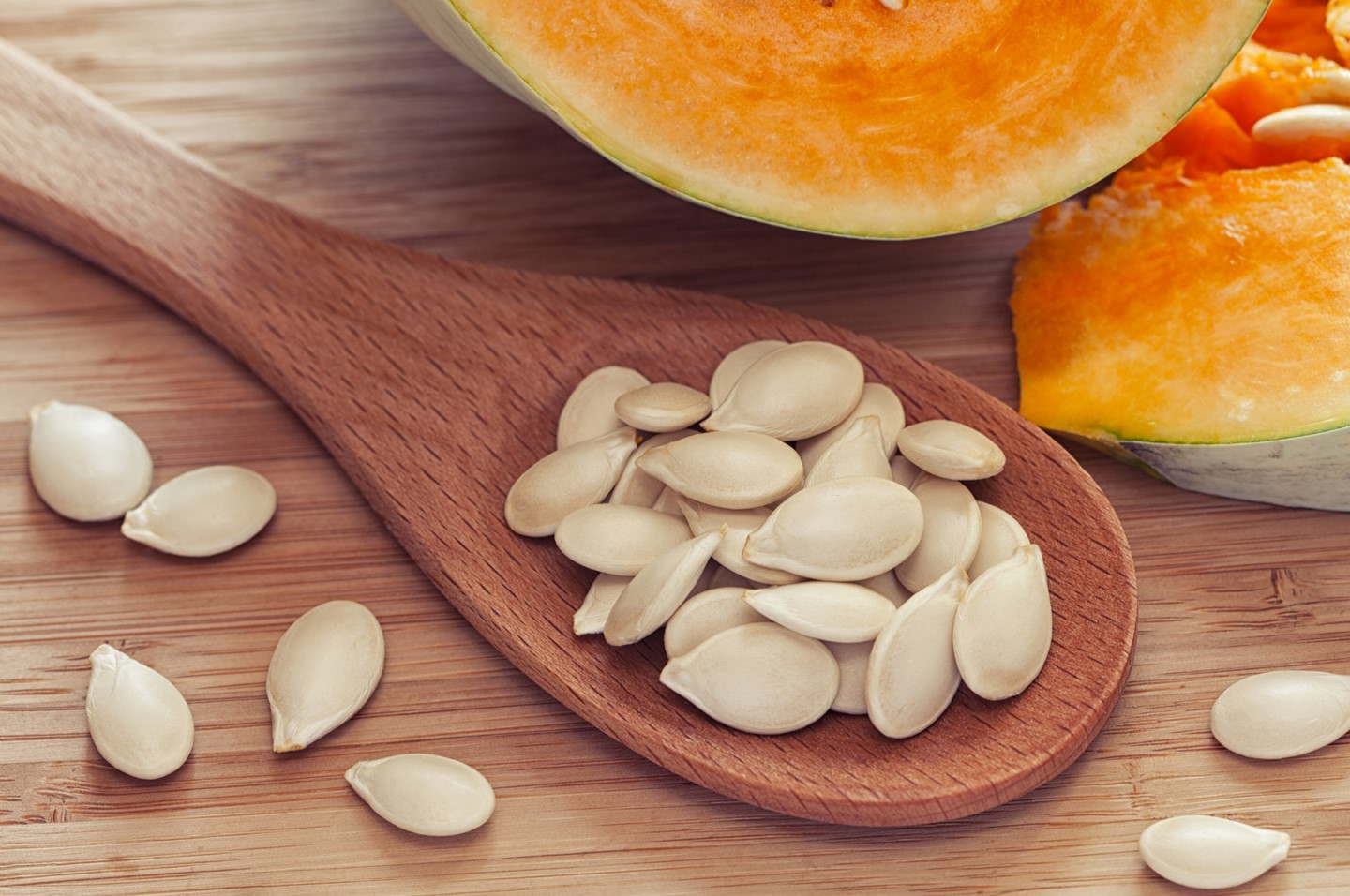
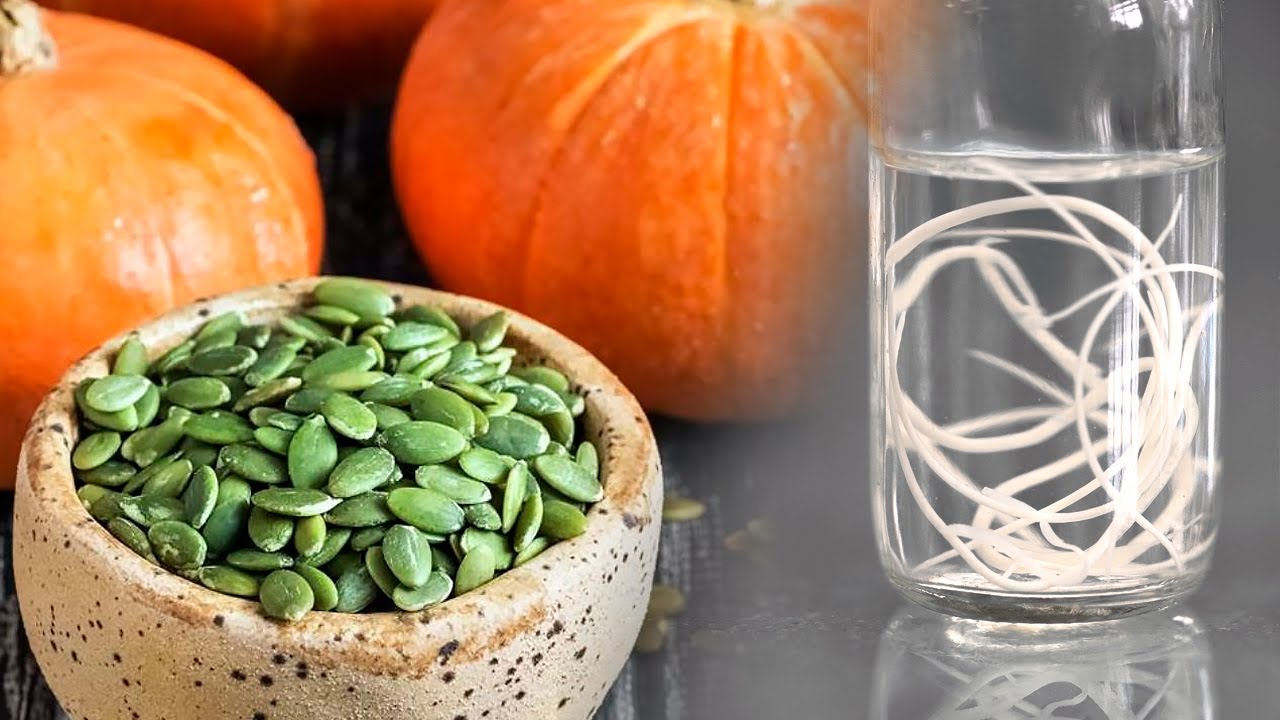

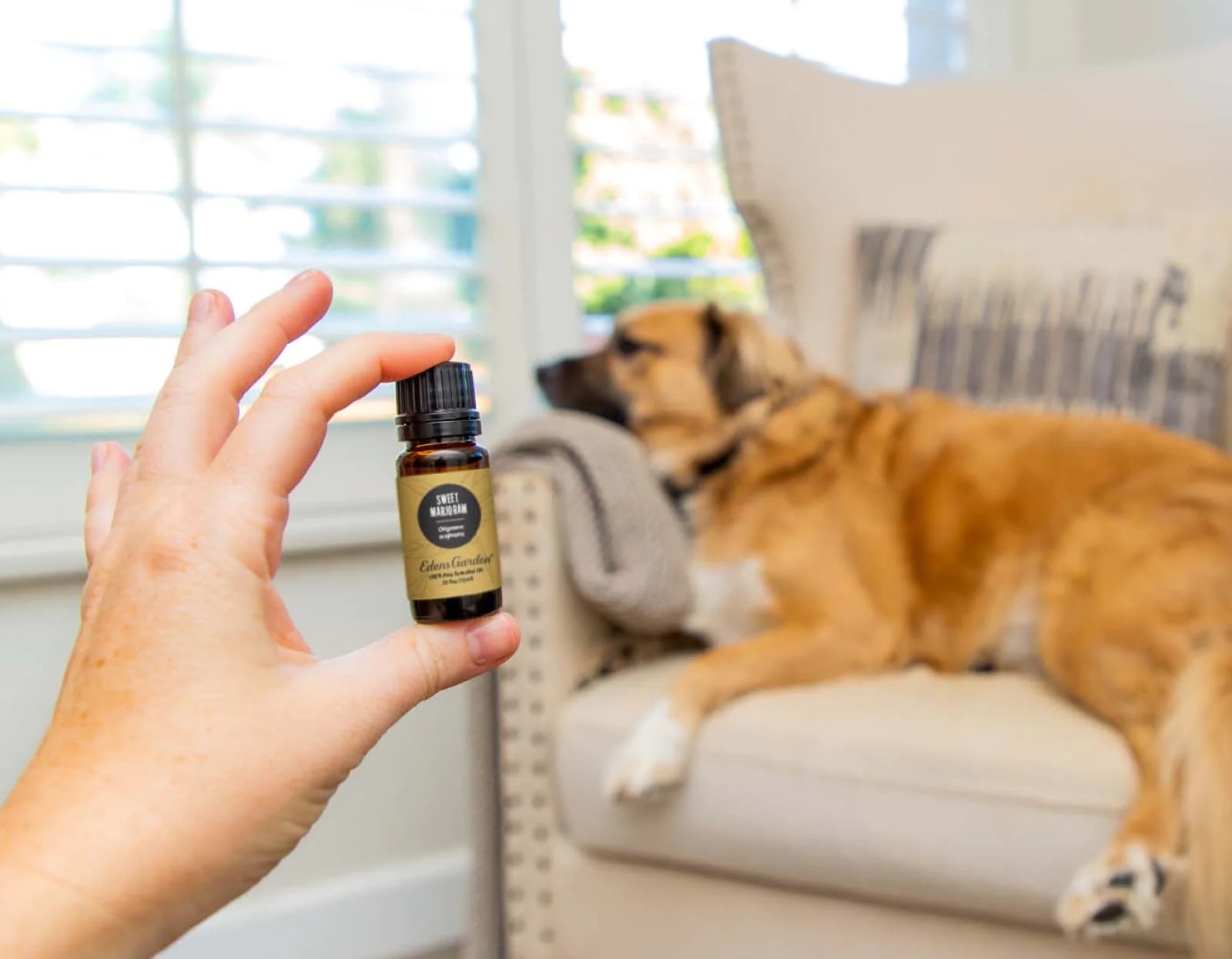
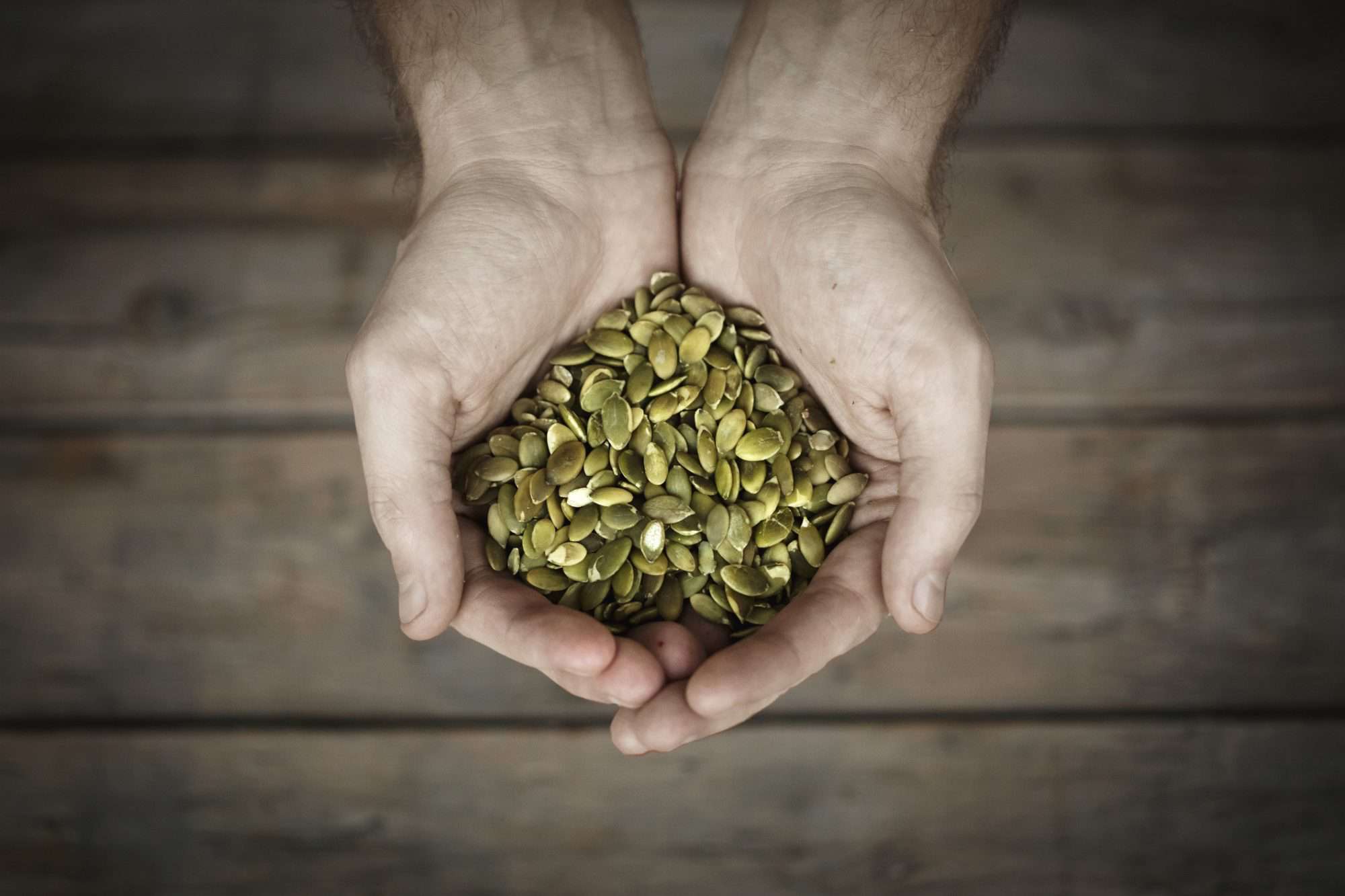
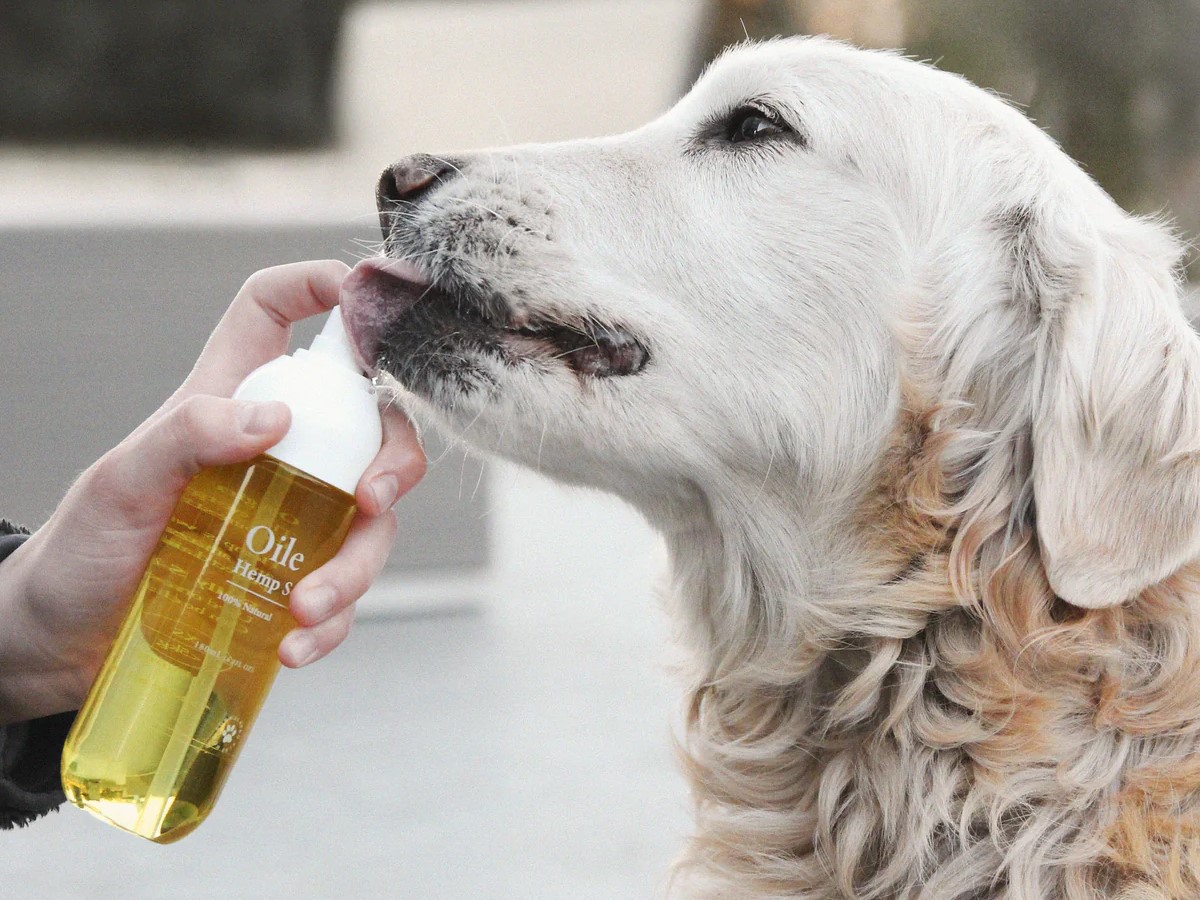
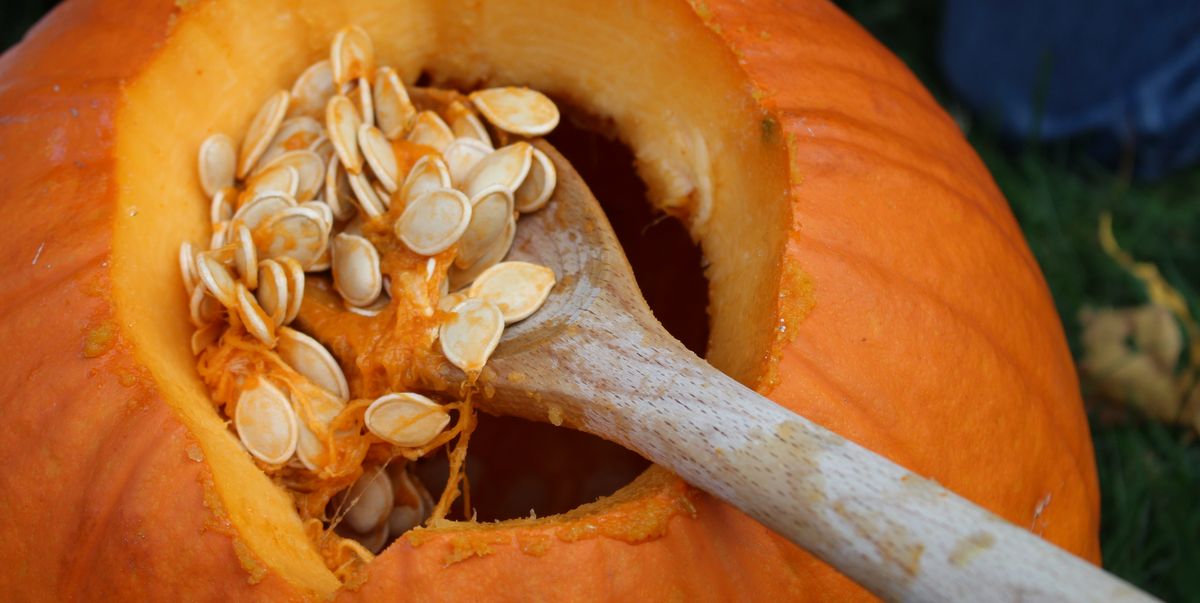
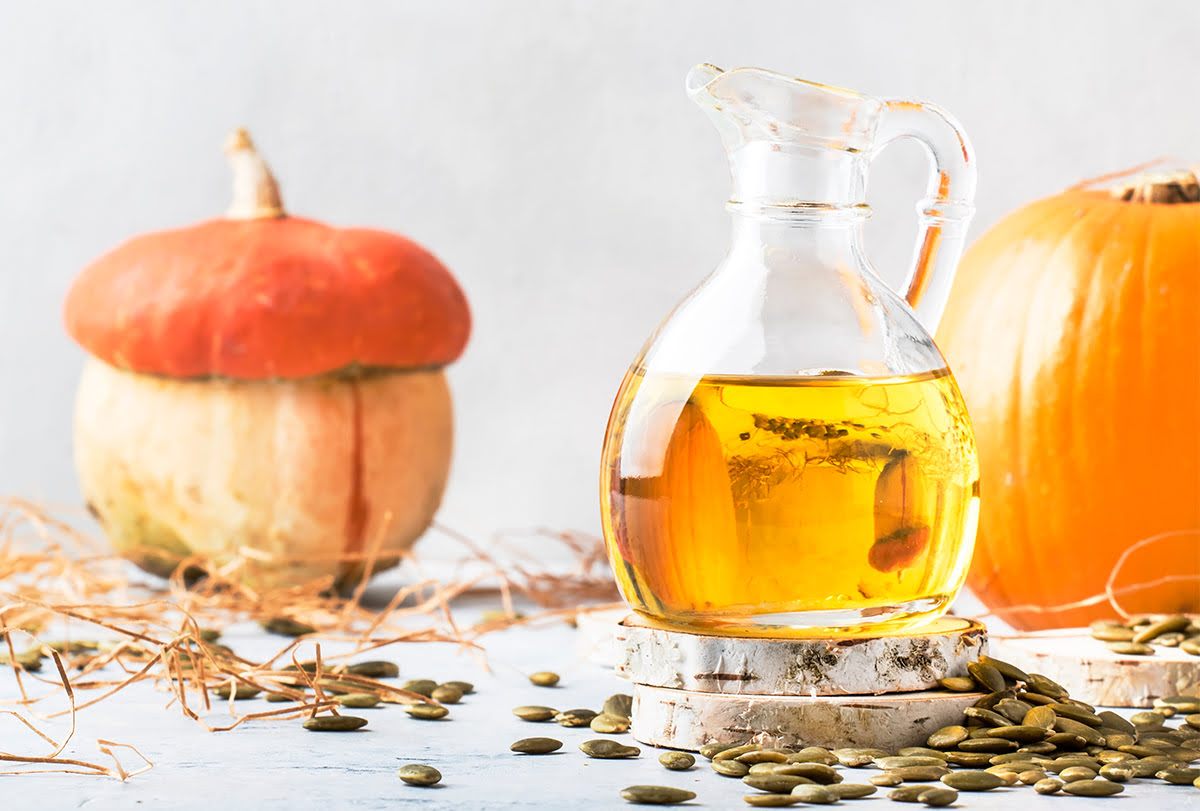
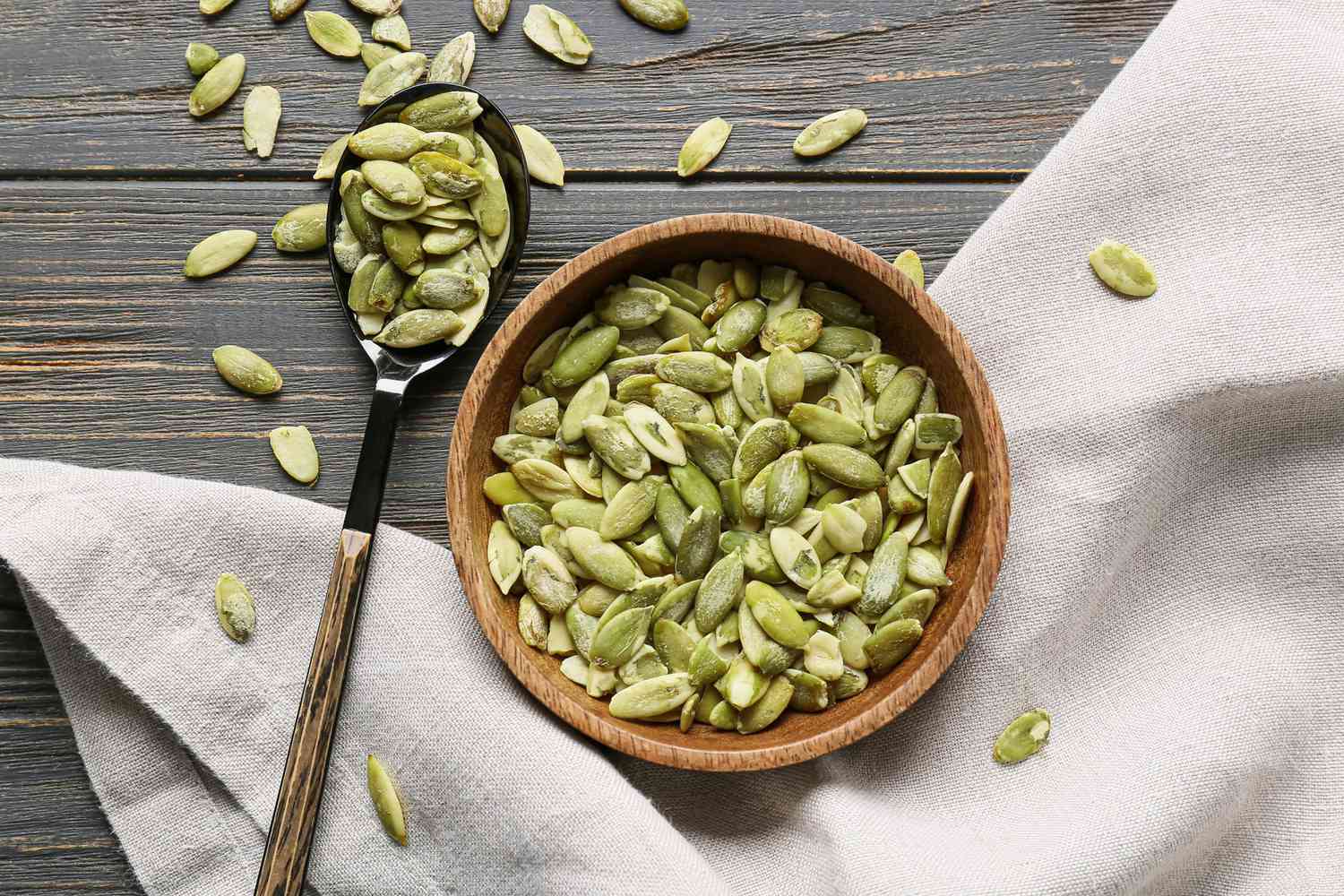
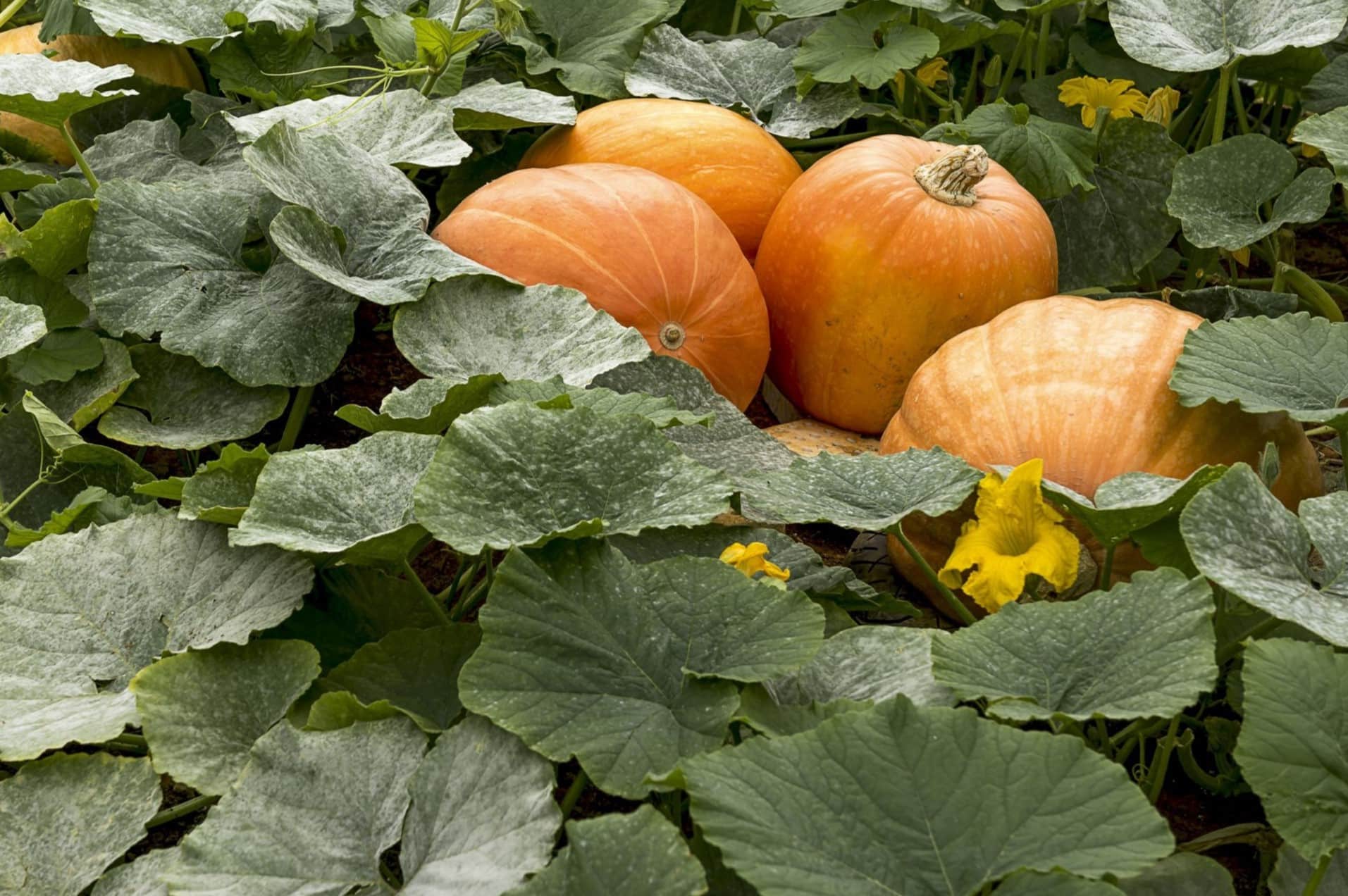
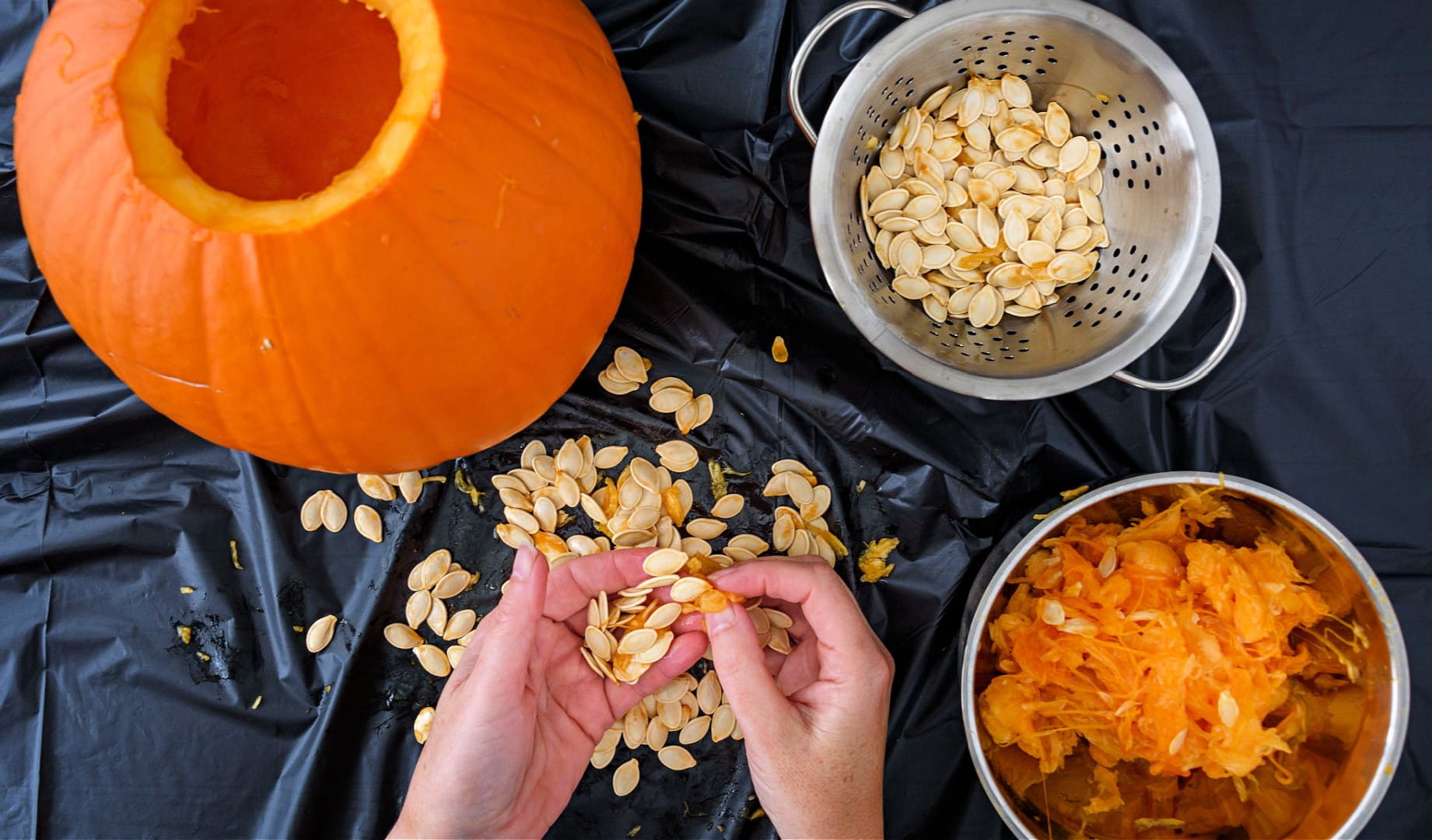
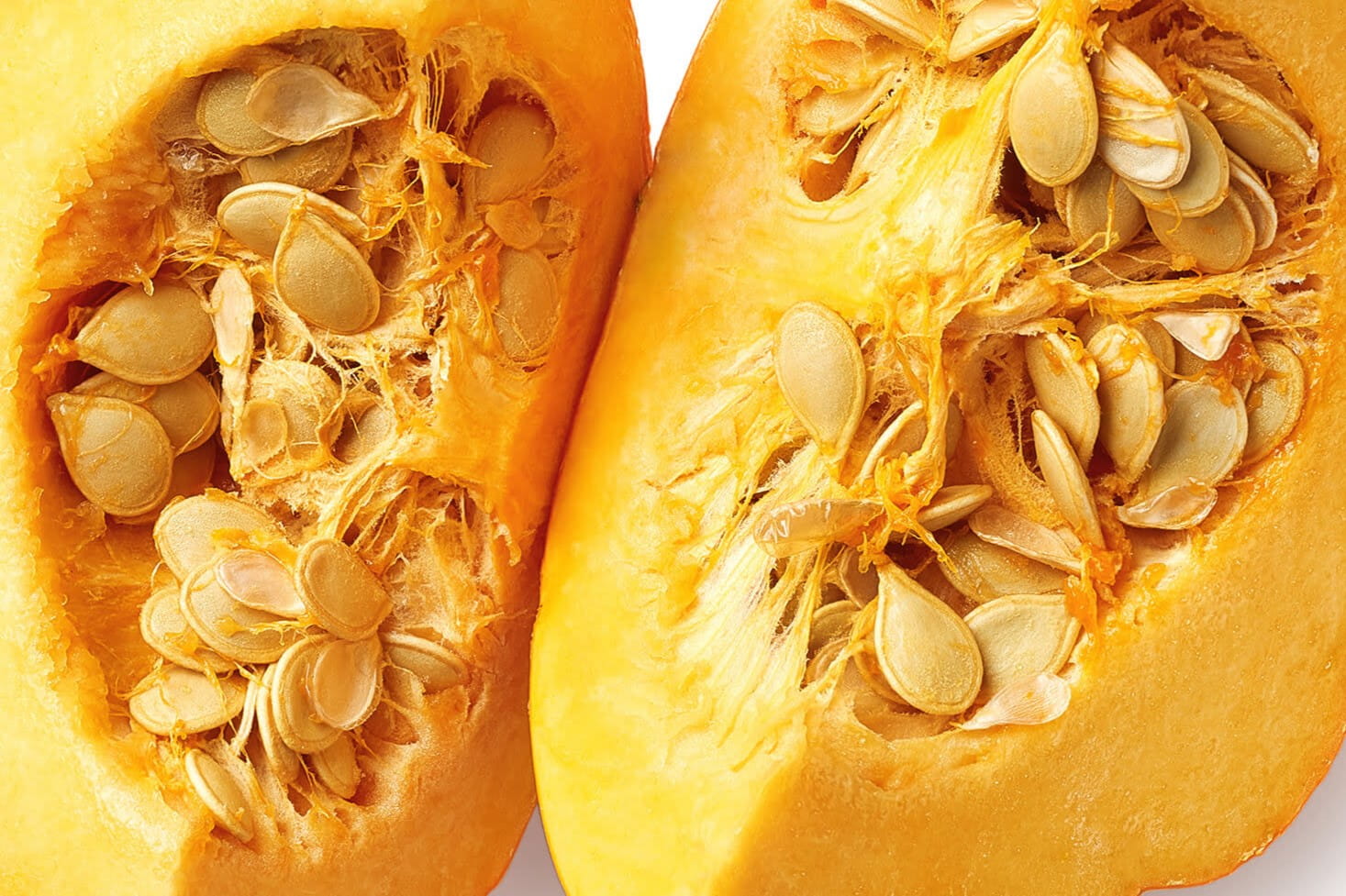

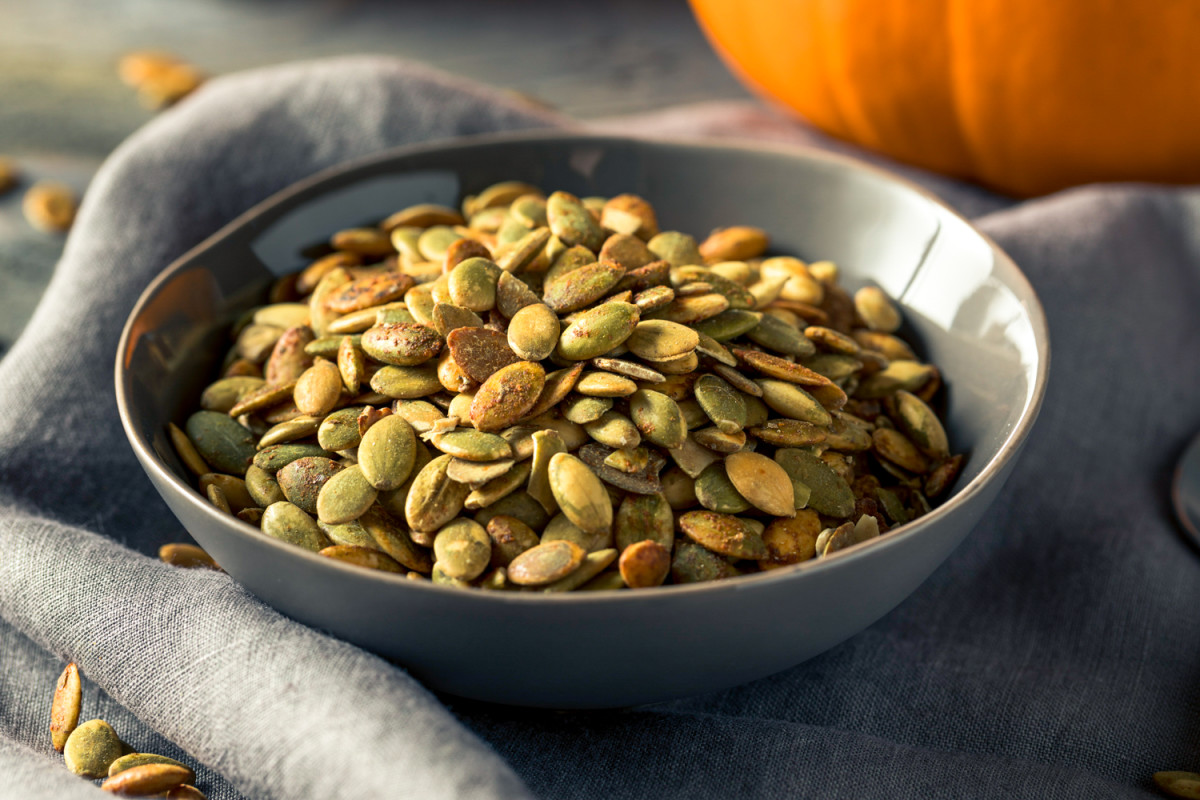

0 thoughts on “How Much Pumpkin Seeds To Give A Dog”